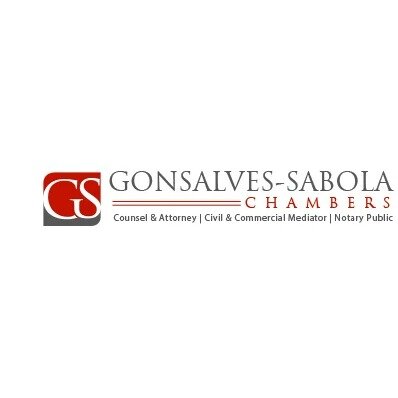Best Sanctions & Export Controls Lawyers in Bahamas
Share your needs with us, get contacted by law firms.
Free. Takes 2 min.
Or refine your search by selecting a city:
List of the best lawyers in Bahamas
About Sanctions & Export Controls Law in Bahamas
Sanctions and export controls law in The Bahamas is a specialized area of legal regulation that governs the flow of goods, technology, services, and financial transactions across national borders. This field primarily involves government-imposed restrictions aimed at promoting national security, fulfilling international obligations, preventing illegal activities, and enforcing foreign policy. In The Bahamas, adherence to sanctions imposed by international organizations such as the United Nations is mandatory, and there are also domestic regulations that relate to the protection of national interests, anti-money laundering, and counter-terrorism financing. Understanding these laws is crucial for individuals and businesses involved in cross-border trade, shipping, finance, and related industries.
Why You May Need a Lawyer
Navigating sanctions and export control laws can be complex and challenging, especially for those unfamiliar with legal language or international compliance requirements. You may need a lawyer for several reasons, including:
- Ensuring your business complies with local and international sanctions and export controls to avoid severe penalties
- Assessing risks related to entering into commercial relationships with foreign entities or individuals
- Resolving disputes or responding to allegations of sanctions violations
- Seeking licenses or permits for the export or import of controlled goods and technologies
- Understanding reporting obligations and documentation requirements
- Challenging a designation under sanctions regimes or seeking the delisting process
- Mitigating risks of asset freezes, seizures, or blocked transactions by local authorities
- Advising on sanctions screening and compliance programs for financial institutions
Local Laws Overview
The Bahamas maintains a legal framework that aligns with international sanctions regimes, particularly those of the United Nations Security Council. Bahamian law gives effect to binding United Nations sanctions and implements these resolutions through domestic legislation. The principal laws relevant to sanctions and export controls include the International Obligations (Economic and Ancillary Measures) Act and the Export Control Act.
Key aspects of Bahamian sanctions and export controls law include the prohibition of trade, financial transactions, or provision of services with countries, entities, or individuals designated by international sanctions. The Central Bank of The Bahamas, the Ministry of Finance, and other authorities oversee the implementation and enforcement of these measures. Non-compliance can result in significant fines, criminal charges, and reputational damage. Businesses, especially those operating in finance, shipping, and international trade, have obligations to conduct due diligence, report suspicious activities, and adhere to customer screening protocols.
Frequently Asked Questions
What are sanctions in The Bahamas?
Sanctions in The Bahamas refer to restrictions imposed by law on certain economic activities or transactions, usually in accordance with United Nations Security Council resolutions or through domestic measures to protect national interests and support international efforts against crime, terrorism, or human rights abuses.
How can I find out if my business partner is subject to sanctions?
You should check official lists published by the Bahamas government, Central Bank, or the United Nations. Engaging a lawyer or compliance professional to conduct due diligence and screening procedures on all business partners is also recommended.
What is export control?
Export control refers to the regulation of the export of certain goods, services, or technologies that may have potential military, security, or economic implications. The Bahamas controls the export of specified sensitive or strategic goods in accordance with domestic law and international obligations.
Who enforces sanctions and export control laws in The Bahamas?
Enforcement is carried out by several governmental agencies including the Central Bank of The Bahamas, customs authorities, the Ministry of Finance, and law enforcement agencies. These bodies ensure compliance with international and domestic sanctions and export controls.
Can an individual or business request an exemption from sanctions or export controls?
In some cases, exemptions or licenses may be considered for certain activities if allowed under the applicable sanctions regime. An application must be made to the relevant authority, and legal advice is strongly recommended.
What are the penalties for violating sanctions or export control laws?
Penalties can include significant fines, seizure or forfeiture of assets, loss of licenses or permits, and even criminal prosecution resulting in imprisonment, depending on the seriousness of the violation.
Does The Bahamas recognize international sanctions imposed by foreign countries?
The Bahamas primarily recognizes and enforces United Nations-mandated sanctions. Other foreign or regional sanctions may not automatically be enforceable unless adopted into Bahamian law.
Are all exports from The Bahamas subject to controls?
No. Only exports specified in local legislation or subject to international obligations are controlled. Most routine commercial exports are not controlled, but specific categories of goods and services may require licenses or approvals.
How can I ensure my business is sanctions compliant?
Implement robust compliance programs, conduct ongoing customer and transaction screening, seek legal advice on obligations, and ensure employees are properly trained on sanctions-related issues.
Can sanctions or export control restrictions be challenged?
Yes, affected parties may have legal avenues to challenge designations or seek removal from sanctions lists. Legal assistance is vital in navigating such processes.
Additional Resources
If you need more information or assistance, consider consulting the following resources and authorities in The Bahamas:
- The Central Bank of The Bahamas - Provides guidance on sanctions compliance for financial institutions.
- Customs Department - For information on export and import controls.
- Ministry of Finance - Official government source for policy and regulatory information.
- United Nations Security Council Sanctions Committees - For consolidated sanctions lists and updates.
- Local attorneys and law firms specializing in financial services and compliance law.
- Industry associations and chambers of commerce with an emphasis on international trade and compliance.
Next Steps
If you believe that your activities may be subject to sanctions or export controls, or if you have questions about compliance, it is important to seek professional advice. Start by documenting your questions and concerns, and gather all relevant information about your business operations or proposed transactions. Contact a qualified attorney in The Bahamas with specialized experience in sanctions and export controls law. Early legal intervention can help you avoid costly mistakes, ensure full compliance, and resolve any uncertainties. Remember, sanctions and export controls issues can be complex and moving quickly is essential to protecting your interests.
Lawzana helps you find the best lawyers and law firms in Bahamas through a curated and pre-screened list of qualified legal professionals. Our platform offers rankings and detailed profiles of attorneys and law firms, allowing you to compare based on practice areas, including Sanctions & Export Controls, experience, and client feedback.
Each profile includes a description of the firm's areas of practice, client reviews, team members and partners, year of establishment, spoken languages, office locations, contact information, social media presence, and any published articles or resources. Most firms on our platform speak English and are experienced in both local and international legal matters.
Get a quote from top-rated law firms in Bahamas — quickly, securely, and without unnecessary hassle.
Disclaimer:
The information provided on this page is for general informational purposes only and does not constitute legal advice. While we strive to ensure the accuracy and relevance of the content, legal information may change over time, and interpretations of the law can vary. You should always consult with a qualified legal professional for advice specific to your situation.
We disclaim all liability for actions taken or not taken based on the content of this page. If you believe any information is incorrect or outdated, please contact us, and we will review and update it where appropriate.
Browse sanctions & export controls law firms by city in Bahamas
Refine your search by selecting a city.

















